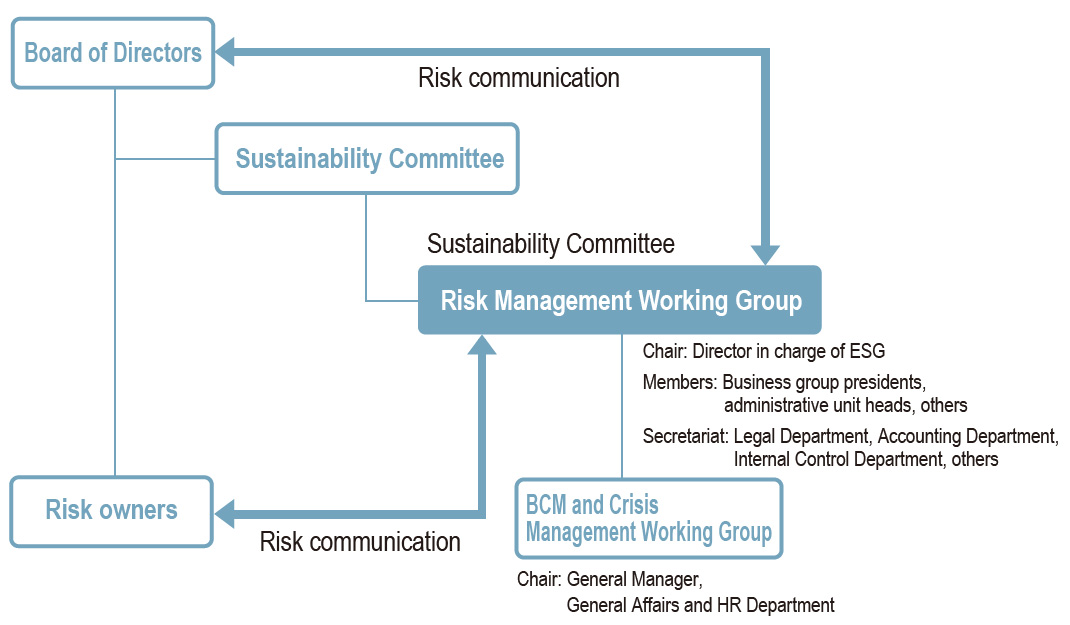Risk Management
Basic Approach to Risk Management
The DIC Group works to expand its operations in line with the growth scenario set forth in the DIC Vision 2030 long-term management plan. At the same time, in this age of unprecedented uncertainties caused by technological innovation, diversifying values, wars and pandemics, effectively managing risks is crucial to increasing corporate value. The Group strives to address changes in its operating environment and the diversification of risks in an appropriate and flexible manner. The Group also promotes initiatives aimed at promptly minimizing the impact of latent risks on its businesses should such risks manifest.
Risk Management Policy
Based on the aforementioned basic approach, the DIC Group has established a risk management policy. This policy has two components.
- The DIC Group shall identify, assess, prioritize and address any risks that may have a significant impact on its management based on potential impact on management and likelihood of occurrence, and responds in a deliberate, systematic and efficient manner.
- The DIC Group shall establish a Group risk management system and ensure its effectiveness by repeating the PDCA cycle.
Framework for Risk Management
In addition to appointing a new director in charge of risk management, the DIC Group recently established a new Risk Management Working Group, a subordinate entity of the Sustainability Committee, as part of its effort to strengthen its comprehensive risk management framework.

Risk Management Initiatives
Among the broad range of risks recognized as a result of voluntary risk management efforts in divisions and/ or departments, the DIC Group recognizes risks in three principal categories. The first two are externally caused risks and corporate risks, which are managed by the Sustainability Committee and its subordinate entity, the Risk Management Working Group, while the third is business risks, which are monitored appropriately by, among others, the Executive Committee, an entity established to deliberate important matters related to the execution of business activities.
Each fiscal year, the DIC Group identifies risks based on their potential to hinder achievement of the goals of the DIC Vision 2030 long-term management plan as priority risks. Each risk is assigned an owner, that is, the division or department responsible for implementing countermeasures and validate their effectiveness using the PDCA cycle, with the aim of minimizing impact should the risk materialize. These efforts are overseen by the Board of Directors.

